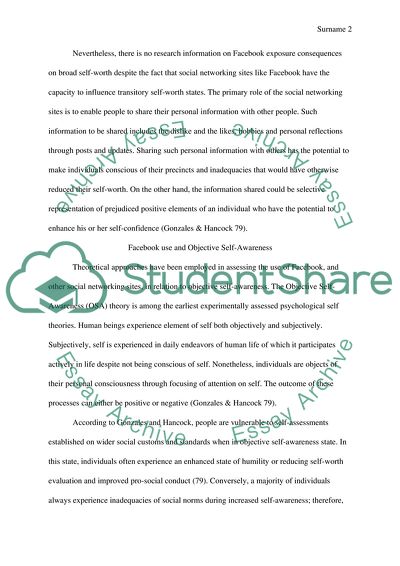Cite this document
(Effects of Exposure to Facebook on Self-Esteem Report Example | Topics and Well Written Essays - 1250 words, n.d.)
Effects of Exposure to Facebook on Self-Esteem Report Example | Topics and Well Written Essays - 1250 words. https://studentshare.org/social-science/1782116-rhetorical-analysis-mirror-mirror-on-my-facebook-wall-effects-of-exposure-to-facebook-on-self-esteem
Effects of Exposure to Facebook on Self-Esteem Report Example | Topics and Well Written Essays - 1250 words. https://studentshare.org/social-science/1782116-rhetorical-analysis-mirror-mirror-on-my-facebook-wall-effects-of-exposure-to-facebook-on-self-esteem
(Effects of Exposure to Facebook on Self-Esteem Report Example | Topics and Well Written Essays - 1250 Words)
Effects of Exposure to Facebook on Self-Esteem Report Example | Topics and Well Written Essays - 1250 Words. https://studentshare.org/social-science/1782116-rhetorical-analysis-mirror-mirror-on-my-facebook-wall-effects-of-exposure-to-facebook-on-self-esteem.
Effects of Exposure to Facebook on Self-Esteem Report Example | Topics and Well Written Essays - 1250 Words. https://studentshare.org/social-science/1782116-rhetorical-analysis-mirror-mirror-on-my-facebook-wall-effects-of-exposure-to-facebook-on-self-esteem.
“Effects of Exposure to Facebook on Self-Esteem Report Example | Topics and Well Written Essays - 1250 Words”. https://studentshare.org/social-science/1782116-rhetorical-analysis-mirror-mirror-on-my-facebook-wall-effects-of-exposure-to-facebook-on-self-esteem.


